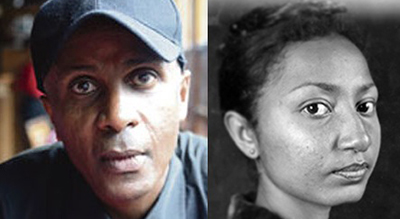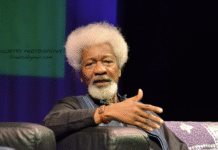
(Photo Credit: Google Images)
Writing for African Arguments, Adam Green examines the growing number of journalists, bloggers or media owners jailed for challenging the government. Green recounts laws passed in “democratic” countries in order to silence media companies from exposing government corruption. Ugandan police seized two newspapers after exposing President Yoweri Museveni’s alleged plot to have his son succeed him; Rodney Sieh, editor of Liberian media house FrontPageAfrica, was detained for failing to pay libel damages following accusations that a government minister had embezzled funds; Tanzania’s newspaper Mwananchi was closed for “seditious” activity; South Africa’s secrecy law is under scrutiny for impeding journalists from reporting on important information about the government.
Green writes:
And these are the more liberal environments. Reporters without Borders – an NGO which “defends the freedom to be informed and to inform others throughout the world” – has flagged Zimbabwe, Ethiopia and the Democratic Republic of Congo as critical trouble zones, citing the situation in Angola as also deteriorating. Human Rights Watch issued a report in August calling on the attorney general to drop a cluster of criminal defamation cases against an investigative journalist, Rafael Marques de Morais, whose blog exposed high-level corruption cases and human rights violations. Ethiopia, meanwhile, ranks 137th out of 179 countries in the 2013 index, and critics say that a 2009 anti-terrorism law has been invoked to justify the detention of journalists critical of the government.
Despite this, two things are worth stating. First, continentally Africa has performed well when it comes to media freedom to date. In the Reporters Without Borders Freedom of the Press Index for 2013, Ghana ranks higher than the US, Namibia beats Canada and Botswana surpasses Japan. South and East Asia appear much more troubled regions, with the likes of Vietnam, China and Pakistan ranking much lower than the bulk of the African continent. Only a handful of Africa’s most troubled states – Somalia, Eritrea and Sudan – are in the bottom 10 globally.
The case of jailed Ethiopian journalists has been widely covered, but the incidences of jailed journalists in Africa has been largely under reported by the international media. Can you imagine the editor-in-chief of The Washington Post being detained and placed under house arrest for writing an article critical of US President Obama? How about the offices of The Guardian being shut down for critiquing Parliament? Imagine those things happening and few outlets reporting about it. In 2007, Chauncey Bailey, editor of the Oakland Post and a former reporter for the Oakland Tribune, was shot to death today on a downtown Oakland street after exposing a religious group engaged in criminal activity in the United States and that story was not widely reported. Why is it that the oppression, detainment and terrorism of journalists of color is not addressed more vigorously in major media outlets? Tell us what you think in the comments section below.
Read more of Adam Green’s analysis on AllAfrica.com.
This post was written by Nsenga K. Burton, Ph.D., editor-in-chief of the award-winning news site, The Burton Wire.
Like The Burton Wire on Facebook. Follow us on Twitter @TheBurtonWire.








